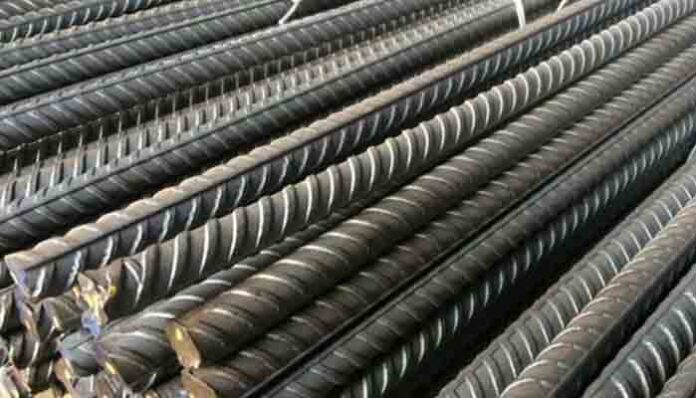ISLAMABAD: The steel industry in Pakistan is sounding a desperate alarm as it calls upon the State Bank of Pakistan (SBP) to reduce interest rates during the upcoming Monetary Policy meeting. This urgent plea comes amidst a crisis that, according to the industry, could have severe consequences for the nation’s economy.
In a letter addressed to concerned ministries, the Pakistan Association of Large Steel Producers (PALSP) highlighted the critical role played by the steel industry in Pakistan’s economic landscape. The industry provides direct employment to over 300,000 individuals and acts as a robust support system for numerous downstream industries, influencing a staggering 7.5 million jobs across various sectors.
However, this crucial industry now faces an existential crisis due to an unprecedented liquidity crunch, stemming from a combination of reduced working capital and weakened purchasing power of mills due to colossal capital requirements. This dire situation has already resulted in the closure of several small to medium-sized steel mills, leading to significant job losses. If the current high interest rates persist, the steel industry’s sustainability remains in jeopardy, and the impending unemployment crisis could become a significant national issue, requiring immediate attention from the SBP and the government.
Presently, the SBP’s key interest rate stands at 22%, a level not seen since early 2011. This interest rate surpasses those of many other countries, rendering Pakistan’s domestic steel industry uncompetitive. While Pakistan’s central bank’s interest rate for industries is 22%, neighboring countries maintain significantly lower rates, such as 6.5% in India, 3.45% in China, 6.5% in Bangladesh, 2.5% in Thailand, 6% in Indonesia, 3.65% in Vietnam, 10% in Sri Lanka, 1.875% in Taiwan, and 3% in Malaysia.
The harsh reality of these interest rates makes it nearly impossible for the steel industry to access credit from financial institutions, resulting in halted expansions and discouraging steel manufacturers from making further investments. As a consequence, the once-promising expansion of existing industries has come to a grinding halt.
A recent report by JS Global indicates, “Based on a 12-month forward CPI, real interest rates have turned positive since September 2023 and are expected to experience a significant expansion with the current Policy Rate at 22%. In the absence of negative CPI surprises, the SBP has an opportunity to initiate monetary easing sooner than anticipated.”
Looking ahead, the next 12 months’ CPI is expected to average at 19%, reflecting a positive real effective interest rate of 300 basis points. By January 2024, the 12-month forward CPI shows a 7.25 basis point positive real interest rate. In light of these developments, the SBP must consider a substantial interest rate reduction of 500 basis points in the upcoming Monetary Policy Committee (MPC) meeting.
Wajid Bukhari, Secretary General of PALSP, emphasized the urgency of the situation, stating that, “Due to high interest rates, Government of Pakistan’s debt servicing has shot up to Rs 7.6 trillion, consuming the majority of the net income of the Federal Government. These rates just don’t make sense, and SBP must act urgently to aid in creating fiscal space for the government to undertake infrastructure projects, which are needed after the record flooding witnessed in Pakistan.”
He says that “The government must realize the gravity of the crisis and implement immediate measures to support businesses and encourage investment in the country. Implementing business-friendly policies is not merely about preserving jobs in the steel industry; it is essential for the overall economic well-being of Pakistan. The health of the steel industry has a direct impact on the broader economy. Our policymakers must focus on creating an enabling environment and formulating long-term policies to foster our local industries.”





price sarya
The content was great, thank you and do not be bored
They sell the most costly steel bar of the world in Pakistan.Still their whining doesn’t stop